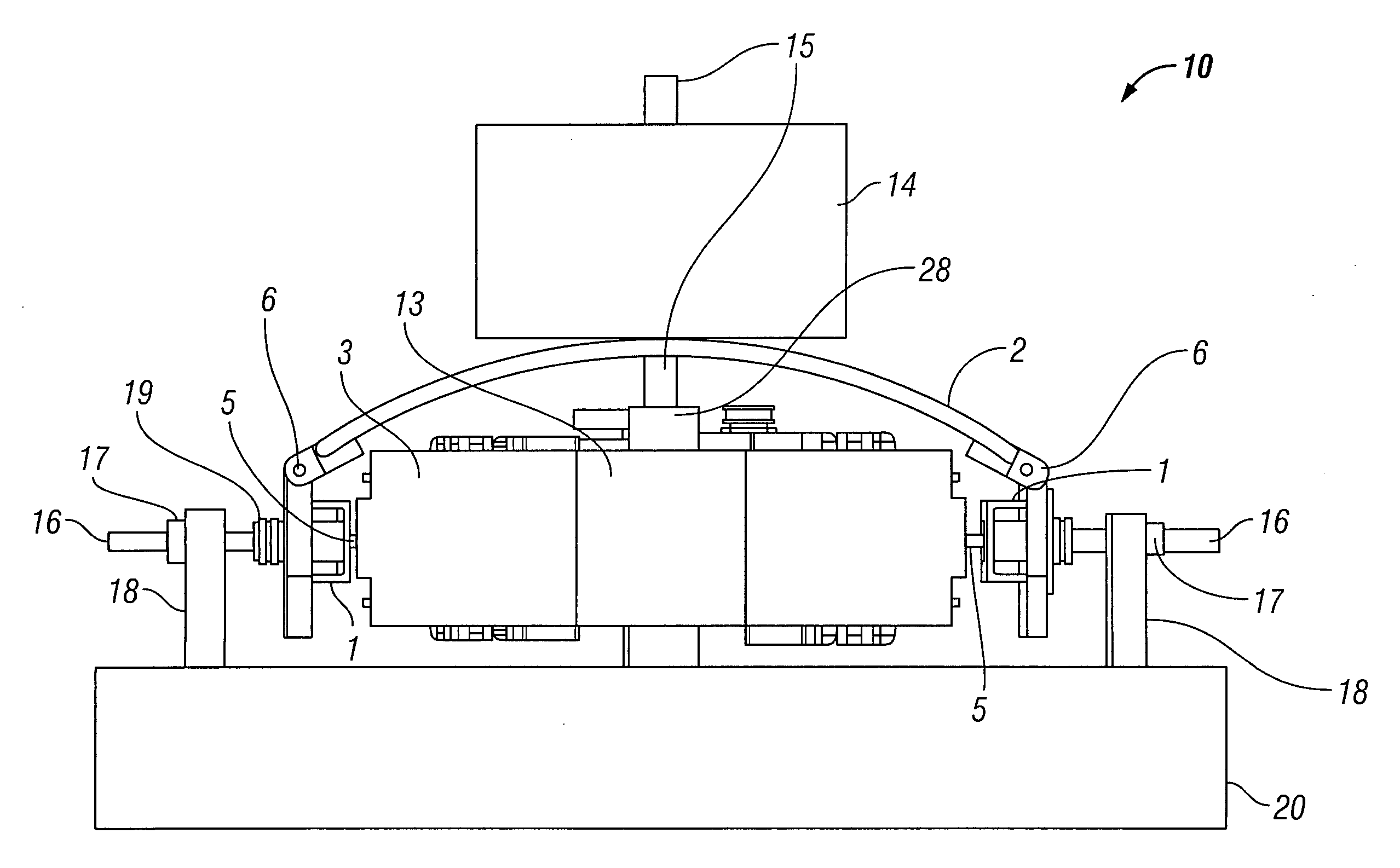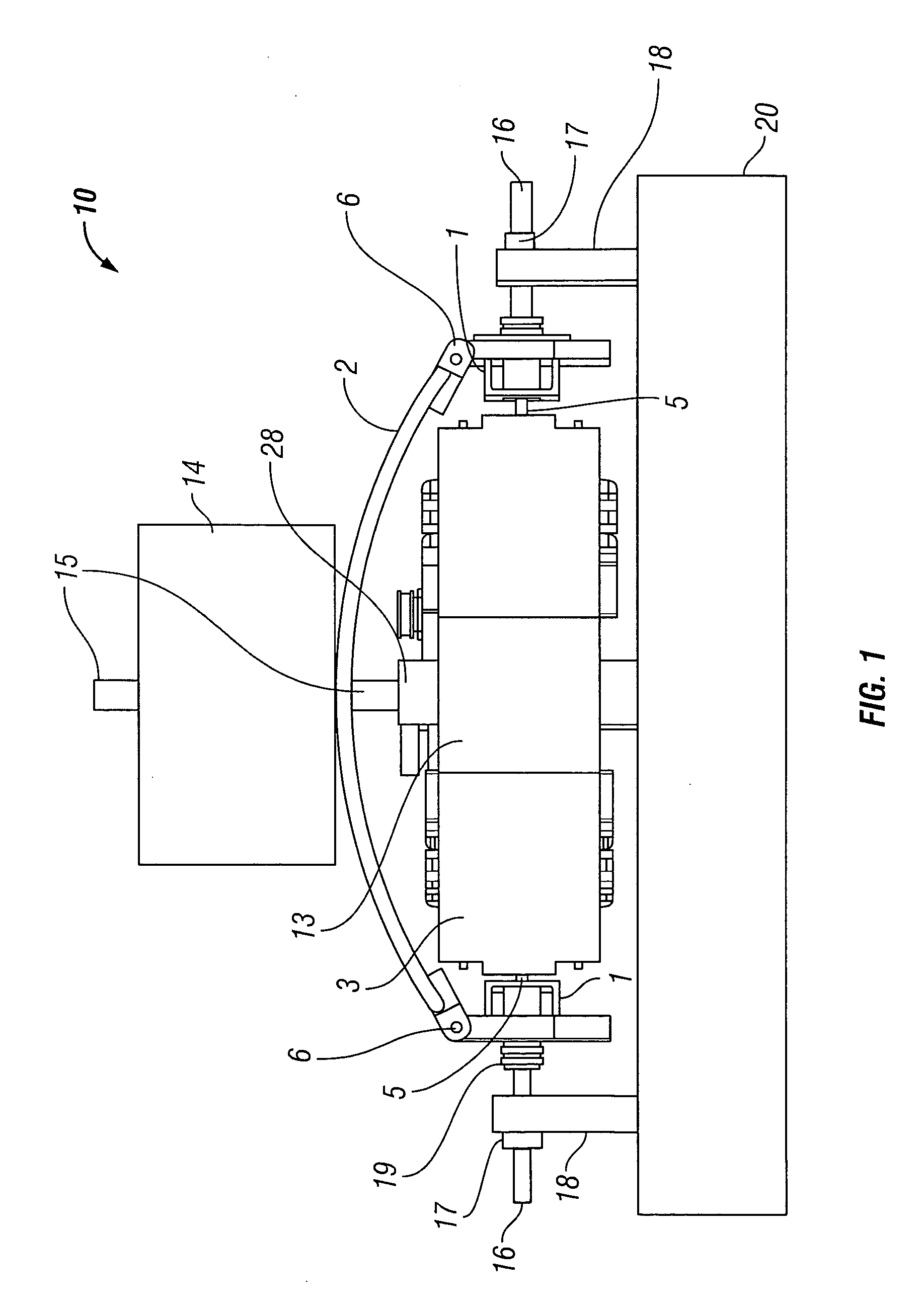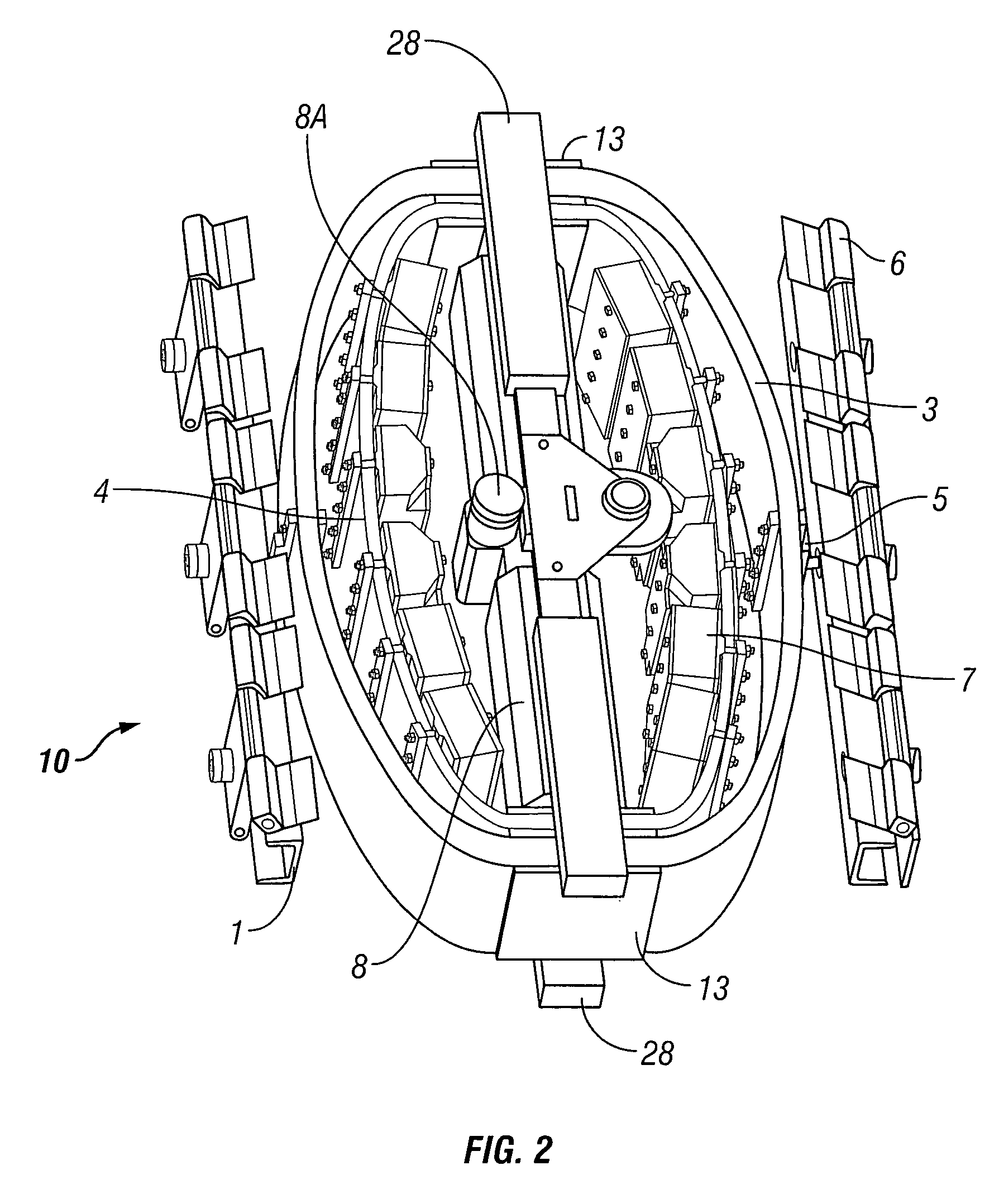Seismic vibrator
a vibrator and seismic source technology, applied in the field of geological exploration, can solve the problems of not being able to use the same frequency range of vibrators, the limited power that such sources known to the art can generate, and sources that have never been commercially deployed
- Summary
- Abstract
- Description
- Claims
- Application Information
AI Technical Summary
Benefits of technology
Problems solved by technology
Method used
Image
Examples
Embodiment Construction
[0019]The description of the invention that follows will begin with a brief explanation of the frequency response of a seismic vibrator in contact with the Earth. Following that is a description of an example vibrator.
[0020]The total impedance that will be experienced by a seismic vibrator may be expressed as follows:
Zr=Rr+jXr (Eq. 1)
[0021]where Zr is the total impedance;
[0022]Rr is the radiation impedance, and
[0023]Xr is the reactive impedance.
[0024]In an analysis of the energy transfer to the Earth from a seismic vibrator, the system of the vibrator and the Earth may be approximated as a baffled piston. In the expression of the total impedance that will be experienced, the radiation impedance Rr of a baffled piston is provided by the expression:
Rr=πa2ρ0cR1(x) (Eq. 2)
[0025]and the reactive impedance is:
Xr=πa2ρ0cX1(x)(Eq.3)wherex=2ka=4πaλ=2ωac(Eq.4)R1(x)=1-2xJ1(x)and(Eq.5)X1(x)=4π∫0π2sin(xcosα)sin2αα(Eq.6)
In the above expressions ρ0=density of the Earth (ground), ω=angular frequen...
PUM
 Login to View More
Login to View More Abstract
Description
Claims
Application Information
 Login to View More
Login to View More - R&D
- Intellectual Property
- Life Sciences
- Materials
- Tech Scout
- Unparalleled Data Quality
- Higher Quality Content
- 60% Fewer Hallucinations
Browse by: Latest US Patents, China's latest patents, Technical Efficacy Thesaurus, Application Domain, Technology Topic, Popular Technical Reports.
© 2025 PatSnap. All rights reserved.Legal|Privacy policy|Modern Slavery Act Transparency Statement|Sitemap|About US| Contact US: help@patsnap.com



